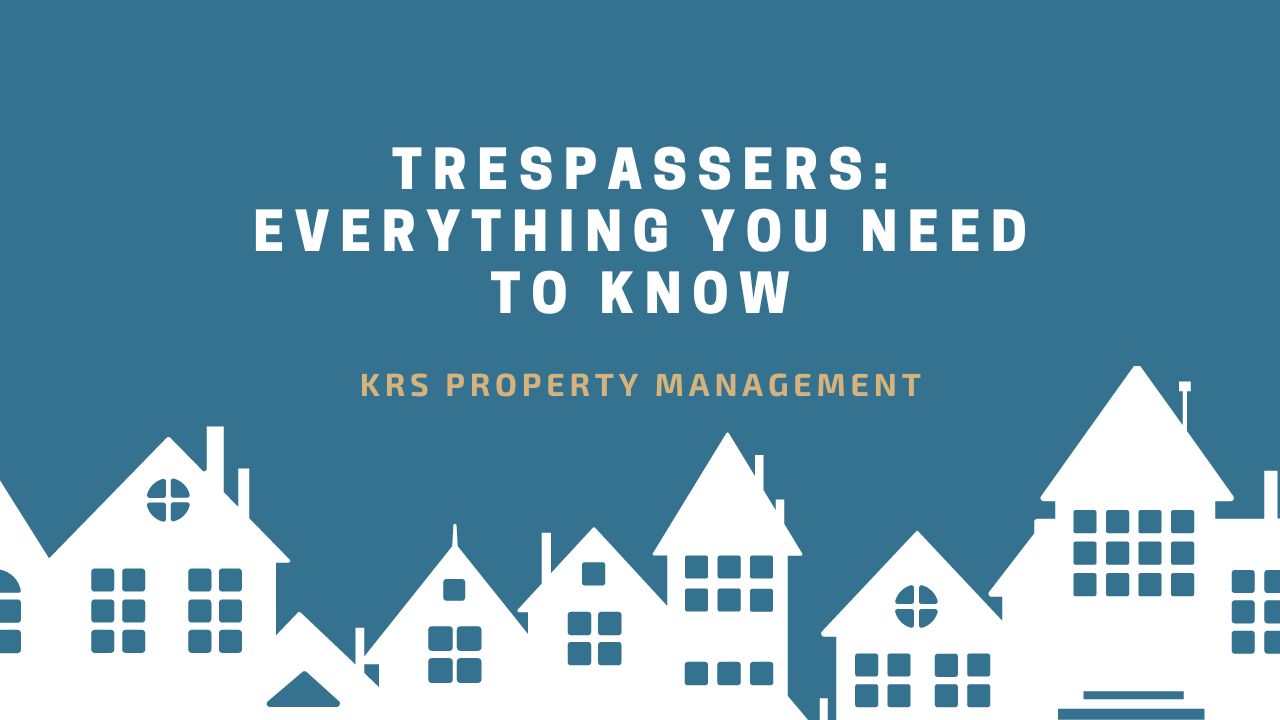
Are you constantly worrying about trespassers on your rental property? Trespassers can be a significant concern for landlords, posing risks to both property safety and liability.
In this comprehensive guide, we'll cover everything you need to know about dealing with trespassers on your rental property. From understanding your legal rights to practical tips for prevention and handling trespassing incidents, we've got you covered!
Understanding Trespassing
Trespassing occurs when someone unlawfully enters or remains on another person's property without permission. As a landlord, it's essential to grasp the concept of trespassing to protect your property rights and ensure the safety of your tenants.
Whether it's unauthorized individuals wandering onto your vacant property or former tenants refusing to vacate, also known as a holdover tenant, understanding what constitutes trespassing is crucial for maintaining a secure and peaceful rental environment.
Managing Trespassers: A Comprehensive Guide
When faced with trespassers on your property, it's vital to take decisive action while respecting both your rights as a landlord and the law. Here's a quick guide to removing trespassers:
Knowing Your Legal Rights
As a landlord, understanding your rights concerning trespassing is paramount. This includes familiarizing yourself with local laws and regulations governing property rights and trespassing.
For instance, you should know what constitutes lawful entry onto your property, the circumstances under which you can ask someone to leave, and the legal procedures for eviction if necessary. By knowing your rights, you can confidently assert your authority as the property owner while avoiding any legal pitfalls.

Assessing Intent and Addressing Immediate Risks
When encountering trespassers on your property, it's essential to assess the situation carefully. Determine whether the trespassers' intent appears innocuous or poses a potential threat to safety or property.
Address any immediate dangers by prioritizing the safety of yourself, your tenants, and the trespassers. This may involve diffusing confrontations peacefully, securing hazardous areas, or contacting emergency services if necessary. By swiftly addressing immediate dangers, you can mitigate risks and create a safer environment for all parties involved.
Effective Communication and Notice Issuance
Effective communication is key when dealing with trespassers. Approach the situation calmly and assertively, clearly informing the trespassers that they are not permitted to be on the property. Politely request that they leave immediately and avoid escalating tensions unnecessarily.
If the trespassers refuse to comply, issue a formal notice in writing, documenting the interaction and specifying the consequences of continued unauthorized presence. Providing an unequivocal notice reinforces your stance as the property owner and sets the stage for further legal action if needed.
Navigating the Eviction Procedure
Familiarize yourself with the eviction process specific to your jurisdiction. This typically involves legal procedures and timelines for removing individuals from your property unlawfully. Depending on your location, eviction laws may vary regarding notice requirements, court proceedings, and enforcement.

By understanding the eviction process, you can navigate it effectively should the situation escalate beyond informal resolution attempts. It's crucial to follow all legal procedures meticulously to avoid delays or complications that could prolong the resolution process.
Legal Considerations for Self-Defense
While protecting your property, it's essential to be aware of the laws governing self-defense in your jurisdiction. While property owners have the right to defend their property, laws regarding self-defense can vary significantly depending on the circumstances.
Understanding the legal parameters of self-defense helps you make informed decisions about how to respond to trespassers while staying within the bounds of the law in Virginia. It's advisable to seek legal guidance to ensure you have a clear understanding of your rights and responsibilities in situations involving self-defense.
Seeking Professional Legal Counsel
When faced with trespassing issues, seeking guidance from a reputable law firm specializing in landlord-tenant law or a local property management company is highly advisable. Legal experts can provide personalized advice based on the specifics of your situation, helping you understand your rights and options.
They can assist you in navigating complex legal processes, such as eviction proceedings, and ensure that your actions comply with relevant laws and regulations. By consulting with professionals, you gain access to invaluable expertise that can help you resolve trespassing issues efficiently and effectively.

Install Security Measures
Implementing security measures can deter trespassers and enhance the safety of your property. Consider installing security cameras, motion-activated lights, and robust fencing to make unauthorized entry more difficult.
These measures not only help prevent trespassing incidents but also provide valuable evidence in the event of a security breach. By investing in security infrastructure, you demonstrate your commitment to protecting your property.
Document Everything
Keeping thorough documentation of any trespassing incidents is crucial for legal purposes and evidence gathering. Record details such as dates, times, descriptions of individuals involved, and any interactions or communications with trespassers.
Preserve any physical evidence, such as photographs or videos of the trespassing activity, and retain copies of written notices or communications issued to trespassers. Comprehensive documentation strengthens your case if legal action becomes necessary and helps demonstrate your diligent efforts to address the trespassing issue responsibly.
Consider Civil Remedies
In addition to eviction proceedings, explore civil remedies available to you for addressing trespassing incidents. This may include obtaining restraining orders or pursuing damages for any harm caused by trespassers.
Consult with legal experts to determine the most appropriate civil remedies based on the specifics of your situation and the extent of the trespassing activity. Civil remedies provide additional avenues for recourse and can help you protect your property rights.
Bottom Line
Navigating trespassing issues can be challenging, but with the right knowledge and resources, you can effectively protect your property and ensure the safety of your tenants. Remember, understanding your rights, communicating effectively, and seeking legal guidance are essential steps in handling trespassing incidents responsibly.
For landlords in the Richmond area, KRS Holdings offers expert property management services, including legal assistance and security recommendations, to help mitigate trespassing risks and maintain a secure rental environment. Trust KRS Holdings to support you in managing trespassing concerns and safeguarding your property investment!






